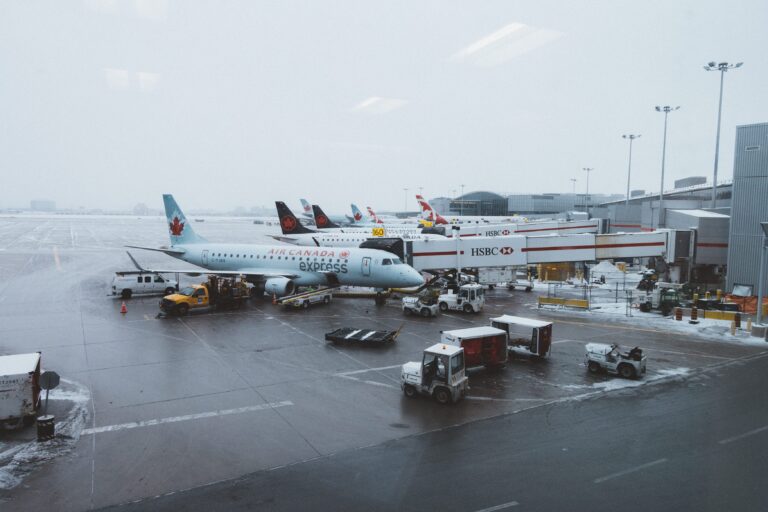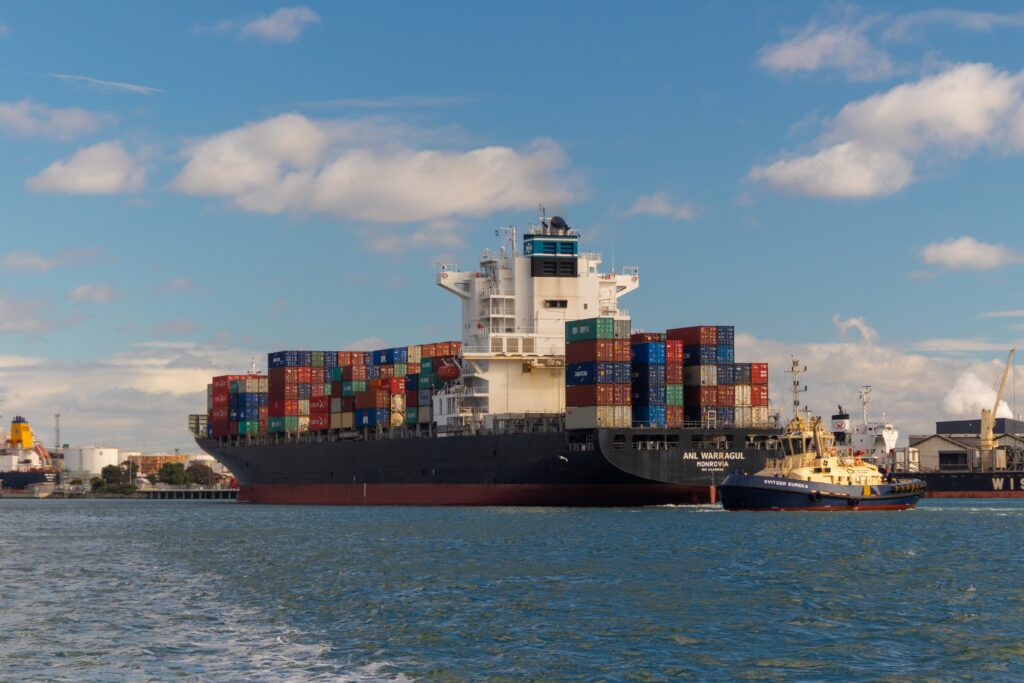Every day, you make decisions. And if you’re in the logistics industry, one of those considerations will almost certainly be how to move your goods. When worldwide shipping needs and tight deadlines collide, the choices become significantly more complicated. Both air freight and ocean shipping, the two most common means of transporting products between countries, offer advantages that you should consider before choosing one over the other.
What is Ocean Freight?
Ocean freight shipping is a time-consuming operation, but it is also the most cost-effective. The term ocean freight refers to the method of carrying commodities over marine commerce routes. It allows transporters to deliver things in huge quantities or bulk with ease. It is one of the most often used methods of transporting products due to its numerous advantages. Nearly 90% of global exports and imports pass through seaports.
What is Air Freight?

Air freight can be defined as cargo sent from one location to another by an air carrier via air routes. Air freight follows the same routes as passenger and commercial planes and is the most incredible option for rapid transportation. Since this is the fastest way, it costs a lot for transporting goods.
Ocean Freight vs Air Freight
Good analysis is required to determine the best option of transport for your freight. To keep your supply chain efficient and cost-effective, a one-time assessment will not suffice.
Working with a company that offers a full array of global logistics and technology services, regardless of which method you choose, will ensure that the transportation mode you want is accessible when you need it.
When deciding the best option between air freight or ocean shipping for your present transportation requirements, keep the following factors in mind.
1. Cost
While ocean freight may be less expensive than air freight, you must first grasp how the cost of each mode is calculated. Chargeable weight, a statistic computed by combining the weight and size of the consignment, is used to bill air freight. Shipment weight is rarely considered in maritime shipping. Instead, ocean transportation is priced per container, with a set rate for a standard container (20′ x 40′). LCLs (less than container loads) are charged per cubic metre.
Shipping through the ocean is often substantially less expensive for huge, heavy cargo. However, when the quantity of a shipment shrinks, the price difference between air and ocean shipping shrinks as well.
However, shipping costs are simply the beginning. You’ll also need to figure out how much inventory costs. Ocean shipment warehousing expenses are generally more expensive than airport warehousing fees. When shipping abroad, keep in mind that both delivery forms will be subject to customs and destination costs.
2. Speed
Air freight is unquestionably faster than maritime freight. It can take weeks for ocean cargo to arrive. It simply takes a day or two for air freight to arrive at its destination. Despite the fact that ships are becoming quicker and ocean shipping routes are continually being optimised, air freight remains the fastest mode of transport.
Faster delivery times are increasingly becoming the new norm in many industries, but before rushing to send everything by air, take the time to plan out your shipping strategy properly. It will save you money in the long run by creating long-term efficiencies.
3. Reliability
Airlines are usually better than ocean carriers at dealing with schedule adjustments. Weather conditions can derail airline schedules far more easily than they do derail ocean voyages, although flights are usually adjusted and rescheduled promptly and effectively. Furthermore, there are frequently many flights between major cities every day, whereas ships sail once a week.
This isn’t to say that air freight is always more dependable than maritime freight. When a ship’s timetable is disrupted, it usually takes a few days for them to get back on track. However, continued alliances between ocean carriers can improve ocean service reliability and integrity, making it a viable option—even for time-sensitive freight like perishables, fashion, and auto components.
4. Complexities of ocean alliances
While ocean carrier agreements boost reliability, they also can cause issues. For example, if three ocean carriers collaborate, you might get a vessel from one carrier one week and the same vessel from a different carrier next week. Each carrier has its own set of rules regarding the types of commodities that are permitted.
So, even though you ship the same product on the same vessel every week, if a different carrier is in charge, your shipment may be prohibited since the rules have changed.
Should you use air freight or ocean shipping?

Because of the advantages and disadvantages, both delivery systems provide outstanding service while also having drawbacks. Customers’ wants and requirements influence the decision.
The speed of delivery is usually the top argument for choosing air service. When opposed to ocean transportation, flying your cargo allows for a shorter transit time. This is especially helpful when delivering items that have a short shelf life. However, speedier service comes at a cost, which is frequently more outstanding shipping charges. It is up to you to figure out which option is best for your shipping strategy.
So, which one should you pick? Examine when your items must reach their destination, your budget, and how each mode will impact your company’s most pressing demands. Ship through the air if your shipments have a hard, fast-approaching arrival deadline and your budget enables it. If you want to save money or have more flexibility with your arrival date, ship by sea.
Related posts
- Advantages and Disadvantages of Air Freight Shipping
- Advantages and Disadvantages Of Ocean Freight Shipping
- Top 10 Freight Forwarding Companies In Chennai
- Top 10 Freight Forwarders In Mumbai
- Top 10 Ocean Freight Forwarders In India
- Top 10 Logistics Trends To Look Out In 2024
- Everything You Need To Know About FTL Shipping
- What Is Customs Clearance?
- Top 11 Freight Forwarders In India [2024]
- 6 Steps To Start Freight Forwarding Business
- 7 Latest Freight Forwarding Trends In 2024
- Top 12 Freight Forwarding Companies In Delhi
- 10 Best Air Freight Companies In Mumbai 2025
